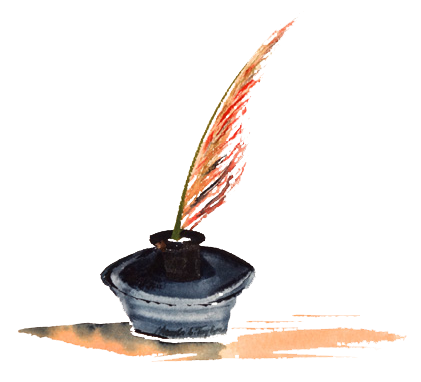I choose to live in Bologna for, among other things, its cultural life. Especially music. And I was not prepared for 3 of the best orchestras I don’t think you’ll ever hear of.
I’ve already been to a mediocre performance of Ariadne auf Naxos with an unprofessional soprano who spoke more than she could sing, I was told she was a last minute replacement but she was not up to singing the role at all and they should never have gone through with it. So I was very disappointed in my first visit to the communal opera. But little prepared for the next 4 concerts.
The Mozart Orchestra
The first one, I went to on a lark it was the Mozart Orchestra, which I thought would be a pick up viennese group. But they had a good program so I bought tickets. Turns out, this orchestra was founded in Bologna by Claudio Abbado and the new music director is the former music director of the Concertgebouw Orchestra, Daniele Gatti. When they started to play Beethoven’s Triple Concerto my jaw dropped: they were as amazing an orchestra as I had ever seen. The soloists were from the orchestra and played like they were soloist calibre. It was incredible. Apparently it is a mass of the best Italian musicians from all over europe and they assemble 2-4 times a year to give a concert in Bologna under the conducting a world class conductor. So actually it is a pick up orchestra of sorts! They also did a fantastic rendition of Beethoven’s seventh. The orchestra was playing in a proportion one associates with modern Beethoven symphonies: a small orchestra with no doubling of instruments. Anyway, what an amazing orchestra with such an unpromising name in Bologna.
But it turns our Mozart and his father (so Mozart and Mozart) did visit Bologna twice! So there.
Teatro Comunale performance of Iolanta.
Given the lackluster performance of one of my favorite operas, Ariadne, I had zero expectations for Tchaikovsky’s Iolanta. Especially since the concert version of the opera was taking place mere weeks after the start of the Invasion of the Ukraine. And the lead soprano was a famous Russian soprano. So I was chock full of biases.
I arrive at the opera house and the program had an insert. Apparently right before the opera a composition by a modern Ukrainian composer who could not be there because she was killed in the early bombing of Kyiv by the Russians. The program book also was discussing at great lengths Tchaikovsky’s Ukrainian roots. And with the orchestra on stage for the concert version and the cast mostly Eastern European (one Russian one Ukrainian) I was unprepared for the glorious voices from top to bottom of the cast. Iolanta, which I never heard of before, was extraordinarily moving and the deep bass tones Russian operas needed were in full force.
The Teatro Comunale of Bologna Orchestra (TBCO)
I assume this is the same as the opera orchestra but I will compare programs and get back to you on this. This orchestra was not on the same level of playing as the Mozart Orchestra which I would rate with the great european orchestras. But the TBCO was definitely on par with the San Francisco Symphony. I was absolutely delighted by this program. The program included a commissioned work that was a cantata of poems by Pier Paolo Pasolini. The program was dedicated to Pasolini and ended with the Beethoven Symphony No. 3, the Eroica.
This program was absolutely fantastic. The modern music was surprisingly harmonic but definitely 21st century.
One of my disappointments (in myself) was the fact that here I was in the 100th Anniversary of Pasolini’s birth in Bologna and could not take part in most of the festivities because they were all in Italian. And my language skills aren’t quite there yet. But now I felt a part of the city and a part of the celebration.
The concert was conducted by the music director of the Teatro Comunale, Oksana Lyniv, the famous Ukrainian conductor.
Filharmonica del Teatro Comunale Bologna
I have even less idea what the relationship of this orchestra is to the opera and/or the TCBO. I do notice for some operas this orchestra is in the pit. I will research and get back to you.
In this concert, the orchestra was noticeably larger. And also had world class conducting (Vassily Sinaisky) and two amazing world class soloists Mark Bouchkov, violin, Narek Hakhnazaryan, cellist). The program was Brahms’ Double Concerto and then Schubert’s 4th Symphony, the Tragic—which never sounded exactly tragic to me for some reason.
The double concerto was incredible and the communication among the soloists and the orchestra was exquisite. For an encore Bouchkov and Haknazaryan played some amazing duo made up small musical snippets of virtuosity. Both they and Sinaisky got this rousing ovation they do sometimes in Europe where they entire audience claps in unison. To me it sound extraordinary but unpleasantly regimented, but it was clear—since I had not heard this kind of ovation before—that the audience was very appreciative.
Schubert was played in the same romantic orchestra as the Brahms and maybe that added to its lack of conviction but that comment aside it was a completely enjoyable wonderful musical evening. I sat next to an older gay couple (well maybe they were younger than me now that I think about it). Anyway, it was nice to see.
So there we have it: 4 concerts and I am convinced now why Unesco has called Bologna “the City of Music.”

Bravo! What an extraordinary time you’re having in Italy!!! Can’t wait to show up at your doorstep in October!